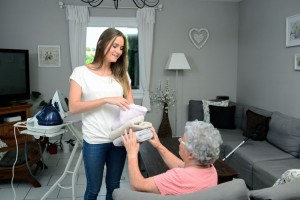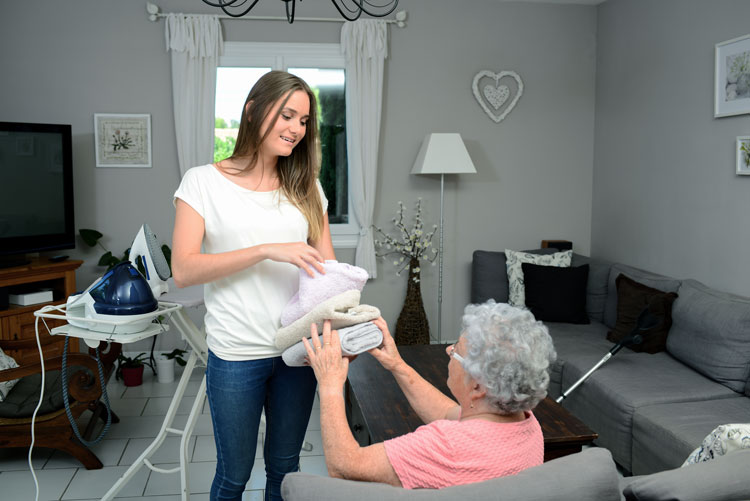Before you entered treatment, most of your free time was probably spent abusing drugs or alcohol.
 Now that you’re in recovery, finding ways to fill your day will prevent boredom from triggering cravings.
Now that you’re in recovery, finding ways to fill your day will prevent boredom from triggering cravings.
Try a New Hobby
Recovery is the perfect time to reinvent yourself. If you’ve always wanted to learn to play the guitar, there’s no better time to begin. If you’ve dreamed of writing the next great American novel, pick up a pen and get started. Now that you’re sober, you’re only limited by your imagination!
When it comes to exploring new hobbies, try to avoid the urge to compare your efforts to others. It doesn’t matter if you miss a note in a new song or if there are grammar mistakes in your first draft. It takes time to become proficient in any new activity, so be patient with yourself. In the early stages of recovery, all that matters is that you’re enjoying the process.
Get Moving
Exercise helps boost your energy level, improve your mood, and promote more restful sleep. Any type of physical activity you enjoy is an excellent way to stay busy in recovery. If organized sports aren’t your thing, try yoga, hiking, biking, or swimming. Even a brisk walk after dinner is good for your mind, body, and spirit.
You don’t need as much time as you might think to get fit. According to the Office of Disease Prevention and Health Promotion, “To attain the most health benefits from physical activity, adults need at least 150 to 300 minutes of moderate-intensity aerobic activity, like brisk walking or fast dancing, each week. Adults also need muscle-strengthening activity, like lifting weights or doing push-ups, at least 2 days each week.”
Develop Your Culinary Skills
Good nutrition plays an important role in addiction recovery by providing your body with the fuel it needs to heal damage from past substance abuse and resist cravings. Cooking can also be an enjoyable way to pass the time, since it involves working with your hands and the finished product can be immediately put to use.
Search for new recipes on Pinterest or check out cookbooks from your local public library. If you have a friend or family member who is a whiz in the kitchen, ask if they would be willing to share some recipes or give you a hands-on demonstration. Once you feel comfortable with the basics, branch out into more advanced projects such as canning fresh produce, making homemade bread, or freezing healthy meals for later use. You may even want to show off your newfound talent by preparing a meal for the loved ones who’ve supported your recovery efforts.
Clean and Organize Your Living Space
A clean, organized home offers a number of advantages.
- It is a calming place to relax at the end of the day.
- It reduces your stress level by eliminating the need to search for misplaced items.
- When your home is tidy, you won’t be embarrassed to have company.
If you’re trying to keep busy, use some of your free time to tackle the deep cleaning projects that would normally get overlooked. This could mean anything from shampooing your carpets to finally sorting through the clutter in your attic. The KonMari method of tidying has been attracting quite a bit of buzz, thanks to the recent hit show on Netflix. However, any system that works for your needs is perfectly acceptable.
Give Back
Finding ways to give back to others can be an immensely satisfying part of the recovery experience. Volunteering helps prevent a victim mentality and fosters a sense of connection with those around you.
Giving back in recovery can mean many things, depending upon your skills and interests.
Possibilities to consider include:
- Volunteer at a community non-profit.
- Visit nursing home residents who don’t have family nearby.
- Run errands or handle household chores for one of your elderly relatives or neighbors.
- Gather unneeded items in your home to donate to a homeless shelter or domestic violence charity.
- Look for service projects you can join at your place of worship.
- If you are a parent, ask your child’s school how you can be of service.
- If transportation is an issue, visit Volunteer Match to search for virtual volunteer opportunities that can be done from anywhere with an internet connection.
Reach Out for Support
If your boredom has reached the point where you can’t stop thinking about using, going to a 12-Step or self-help meeting is the best choice. Meetings provide you with a connection to people who understand exactly what challenges you are facing and can offer practical advice for moving forward with your recovery. In larger cities, AA and NA meetings are offered several times per day.
St. Joseph Institute for Addiction also offers a number of support opportunities for clients who have completed residential treatment. Relapse prevention and aftercare services include ongoing counseling, online education, alumni gatherings, and retreat programs. We believe that strong ties to the recovery community can help you embrace a sober future with confidence.
To learn more about SJI, addiction treatment Pennsylvania, and our programs, please contact us at (814) 228-8881.


